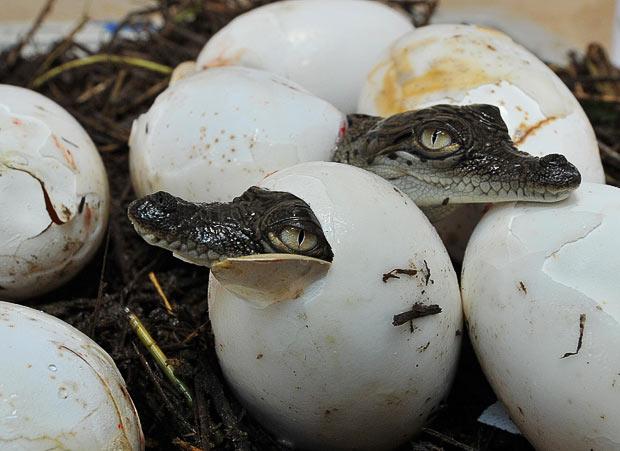Kendrapara: Estuarine crocodile hatchlings have emerged from the eggs of salt water crocodiles which were hatched artificially at the Crocodile Breeding and Research Centre in Dangamal inside the Bhitarkanika National Park (BNP).
Around 18 baby crocodiles emerged out of 101 eggs that were kept at the hatchery of the Crocodile Breeding and Research Centre, said Subrat Kumar Patra, the ACF-cum-Range In-charge of Kanika Forest Range.
Forest officials had collected 101 estuarine crocodile eggs that were lying vulnerable in wild nests. Every year some eggs are collected from wild nests and the eggs are incubated under semi-natural conditions. The hatchlings are reared for three years and then released into the wild.
Through the ‘rear & release’ technique, the baby crocodiles are released in the wild as part of the conservation programme of these endangered species, Forest sources said.
The Salt Water Crocodile’s Research & Conservation Project was launched in July, 1975 at the Bhitarkanika National Park. A wild nest was spotted on Kalibhanjdiha Island inside the sanctuary in 1975. The 25 crocodile eggs, which were laid in the wild, were collected from the site by Forest officials and it was hatched in the hatchery of Dangamala Research & Conservation Centre. Later, 24 hatchlings emerged from the eggs including a partial albino ‘Gori’.
The project has succeeded in increasing crocodile population in the creeks, river and other water bodies of the park and nearby areas. The estuarine crocodile conservation project at BNP Bhitarkanika has turned out to be a success. The project at many other places had failed, said Forest sources.
Hatchlings are yet to come out from 103 wild nests of estuarine crocodiles in Kanika, Gahirmatha, Mahakalapada and Rajnagar Wildlife Forest Range Divisions in BNP, said ACF Patra.
PNN
